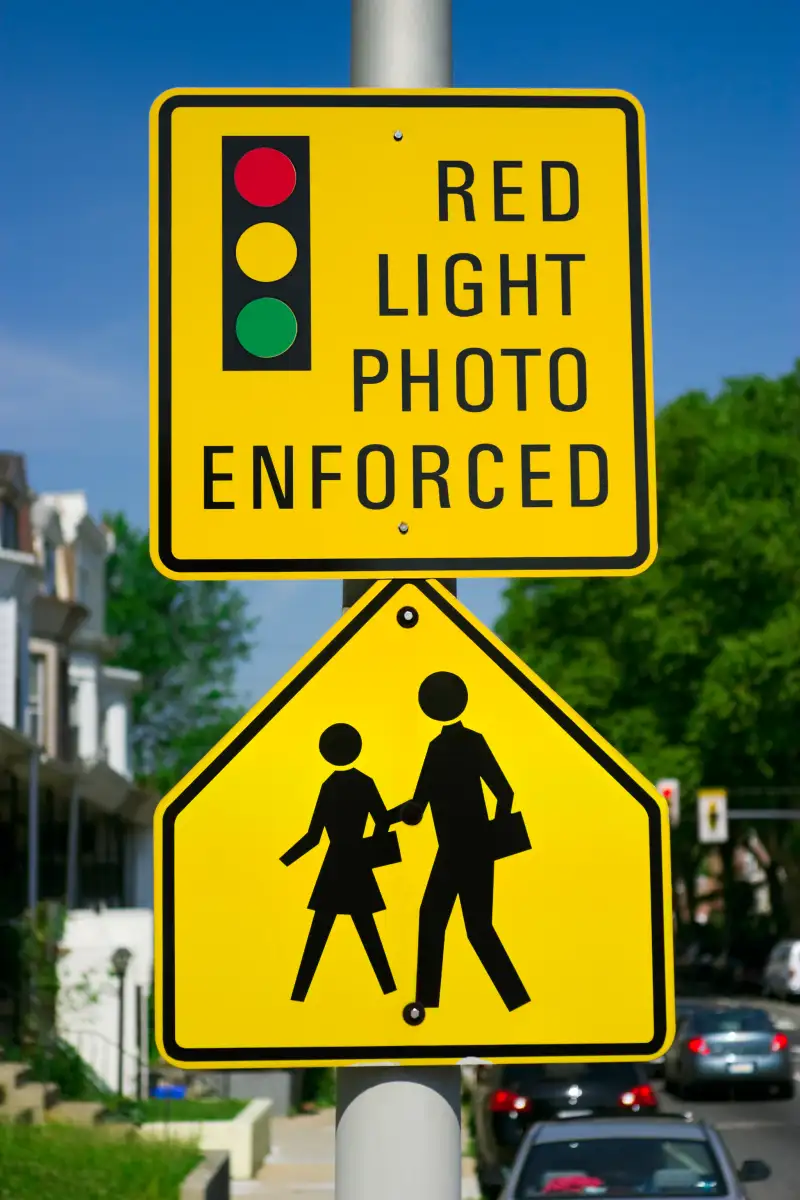Thousands May Get Refunds on Undeserved Red-Light Camera Tickets

While countless drivers may very well feel like they have been given red-light camera traffic tickets without justification—and many would love to see these cameras disappear entirely—a new investigation apparently reveals that thousands and thousands of drivers in the Chicago area have proof that they were hit with tickets and fines they didn't deserve.
The Chicago Tribune recently analyzed some 4 million tickets doled out via red-light camera surveillance since 2007. What researchers found has alarmed drivers and given conspiracy theorists fresh ammunition about Big Brother police tactics and even corruption regarding city contracts and roadside cameras in general. The paper found several instances of sudden inexplicable spikes in the number of tickets generated by cameras. Seemingly out of nowhere, cameras that usually captured a handful of infractions daily were generating dozens of tickets per day, sometimes for a couple of weeks, before returning to the normal pattern.
City officials and traffic experts haven't been able to explain these sudden surges in tickets—tens of thousands of which investigators have deemed "questionable"—and the Tribune's analysis concluded that there is "clear evidence" that they came about due to "faulty equipment, human tinkering or both."
One example, for example, generated a dozen tickets to drivers rolling through right-hand turns for six months in 2011, and then produced 560 tickets for that same infraction over one 12-day period. The assumption is that someone or something changed how the rule was being enforced over that span, and no other bothered to inform drivers.
The traffic experts asked to look over the Tribune's research announced right away that all drivers given undeserved $100 tickets should receive speedy refunds without hassle or the need to petition. Now those experts are being joined by several Chicago aldermen, who this week called on City Hall to launch its own investigation—and to hand out refunds whenever appropriate. Another Tribune story quoted one of the city leaders making the case for drivers:
"We want to find out what went wrong, and we want to see refunds where the ticket was wrongly issued,” said Ald. Scott Waguespack, 32nd. “That would be the way to do it. The basis would be refunds in cases where tickets were wrongly issued.”
What exactly happened to cause these odd sudden surges in cameras generating tickets? Unless the machines truly are taking over, it would seem all but certain that some human element was involved. It wouldn't be the first time that something underhanded has happened with red-light cameras. Last summer, Chicago Mayor Rahm Emanuel decided to drop the contract with Redflex, the company then operating the city's roadside cameras, after a $2 million bribery scheme involving Redflex and a city official overseeing the camera program was brought to light.
While Chicago drivers have a right to feel road rage about its camera system, which appears to be corrupt, incompetent, or both, the fines they're paying are chump change compared with some of the camera-generated tickets handed out in northern California—which sometimes amount to $480 after all the fees are added up. One notorious roadside camera in Oakland, Calif., hit drivers to the tune of $4.2 million in tickets in 2010 alone.
Scott Waguespack, the Chicago alderman, told the Tribune that he and many others have complained over the years to transportation officials that traffic lights turn from yellow to red much too quickly. But no one did anything about it. “They were like, 'Don't worry about it, everything is cool,'” Waguespack said. “Well, clearly it wasn't.”
Not only are city leaders calling for an investigation and refunds, but several lawyers are now in the process of gathering affected drivers for a class-action suit, or perhaps several suits.
That may be one reason why many cities have decided to do away with roadside cameras all together. Several San Diego County cities, for instance, pulled the plug on their roadside camera programs in recent months. The number of U.S. cities with roadside cameras is on the decline too, from 540 in 2012 to 508 this year. Depending on how things play out in Chicago and in other cities where drivers are protesting roadside cameras, that number could keep on falling.
